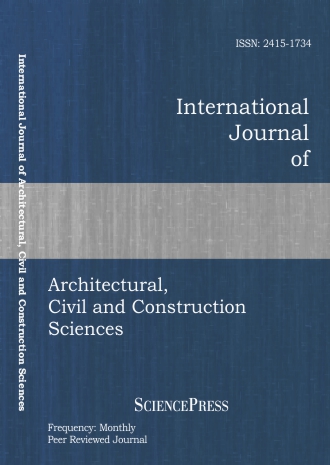
Scholarly
Volume:4, Issue: 1, 2010 Page No: 14 - 18
International Journal of Architectural, Civil and Construction Sciences
ISSN: 2415-1734
1485 Downloads
Research on Simulation Model of Collision Force between Floating Ice and Pier
Adopting the measured constitutive relationship of stress-strain of river ice, the finite element analysis model of percussive force of river ice and pier is established, by the explicit dynamical analysis software package LS-DYNA. Effects of element types, contact method and arithmetic of ice and pier, coupled modes between different elements, mesh density of pier, and ice sheet in contact area on the collision force are studied. Some of measures for the collision force analysis of river ice and pier are proposed as follows: bridge girder can adopt beam161 element with 3-node; pier below the line of 1.30m above ice surface and ice sheet use solid164 element with 8-node; in order to accomplish the connection of different elements, the rigid body with 0.01-0.05m thickness is defined between solid164 and beam161; the contact type of ice and pier adopts AUTOMATIC_SURFACE_TO_SURFACE, using symmetrical penalty function algorithms; meshing size of pier below the line of 1.30m above ice surface should not less than 0.25×0.25×0.5m3. The simulation results have the advantage of high precision by making a comparison between measured and computed data. The research results can be referred for collision force study between river ice and pier.
Authors:
References:
[1] Gao Pei and Jin Guohou, "Investigation and analysis of river ice disaster